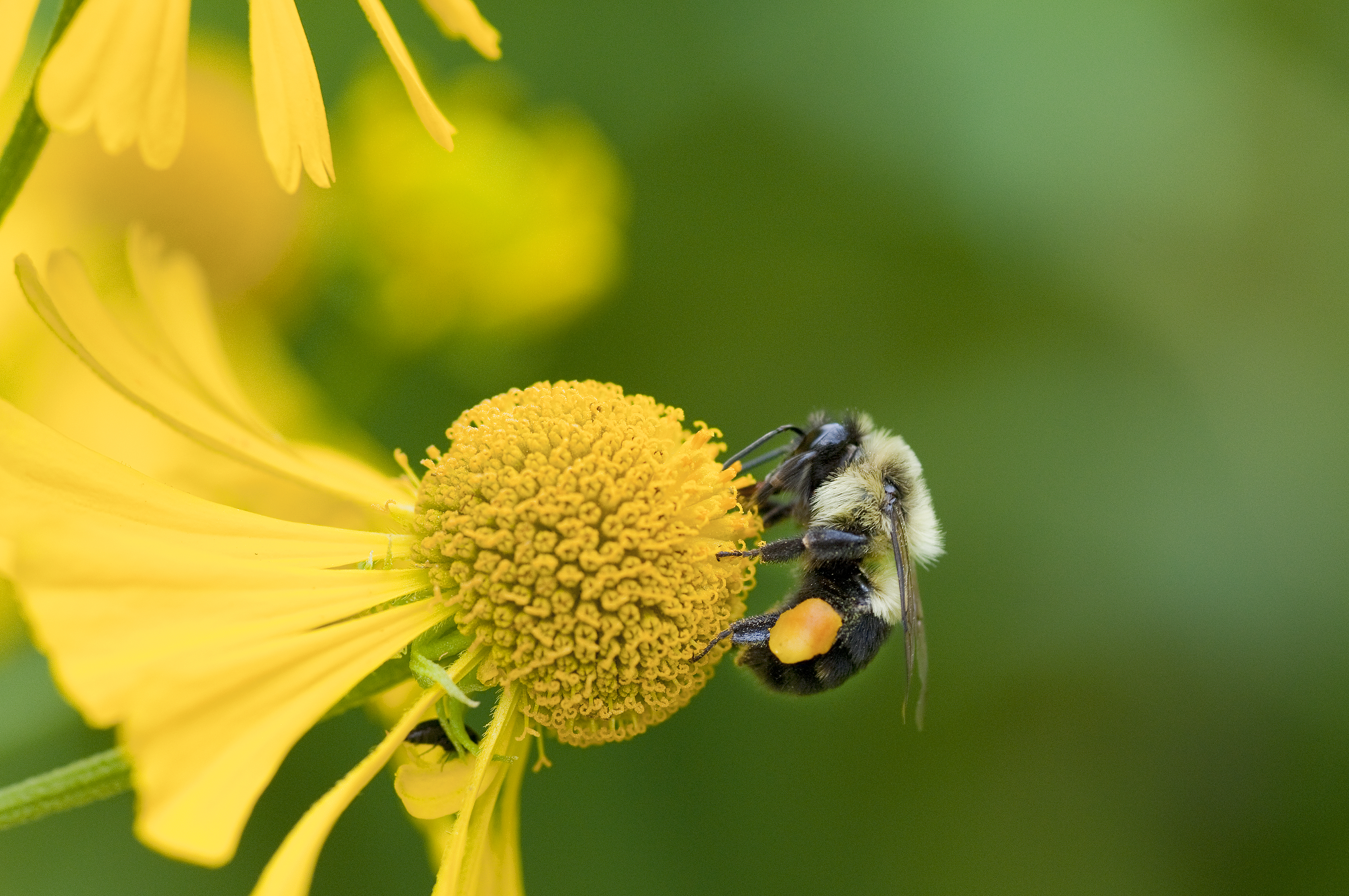Native bees are all the buzz at the Brandywine Conservancy's Stewardship Lecture Series

Chadds Ford, PA, October 23, 2017 — Catch the buzz about native bees and how to protect their habitats during an informative lecture in the Brandywine Conservancy’s Stewardship Series on Thursday, November 2, from 6:30 to 8:30 p.m. Entitled “Native Bees: Beautiful, Essential Pollinators,” the lecture will be led by a local native bee advocate, Don Coats, DVM, who will discuss the importance of native bees in our region, the different species of native bees, and how to help protect them through growing native plant gardens and meadows.
Native bees are far more numerous than honeybees—a domesticated European bee species—and the flowers, trees, and commercial crops in this region depend heavily on them for pollination. In order to properly thrive and survive, these bees need native blooms and appropriate habitat. Attendees will learn about different ways they can help protect and grow native plant habitats in their own communities and backyards. All attendees will also receive a free packet of native milkweed seeds, which is attractive to both native bees and butterflies. The lecture will be held at the Brandywine River Museum of Art lecture room (Riverside entrance) at 1 Hoffman’s Mill Road, Chadds Ford, PA 19317. Light refreshments will be served at 6:30 p.m., and the lecture will begin at 7 p.m. Admission is $5 for members; $7 for non-members; and free for Conservancy easement landowners. Register online at brandywine.org/conservancy/events.
Don Coats lives in Chadds Ford, PA, and is a retired veterinarian, beekeeper, and meadow maker who works with other citizen scientists monitoring the health and behavior of both honey bees and native bees. Through his Citizen Science Beekeeping business, Coats works with bee clubs and community advocates to improve honey bee husbandry and encourage communities to create native habitats and “pocket meadows” that support and preserve native bee populations.
The Brandywine Conservancy protects water, conserves land, and engages communities. The Conservancy uses a multi-faceted approach to conservation. Staff work with private landowners who wish to see their lands protected forever, and provide innovative community planning services to municipalities and other governmental agencies. The Conservancy currently holds 479 conservation and agricultural easements and has facilitated the permanent preservation of more than 63,000 acres of land.
# # #